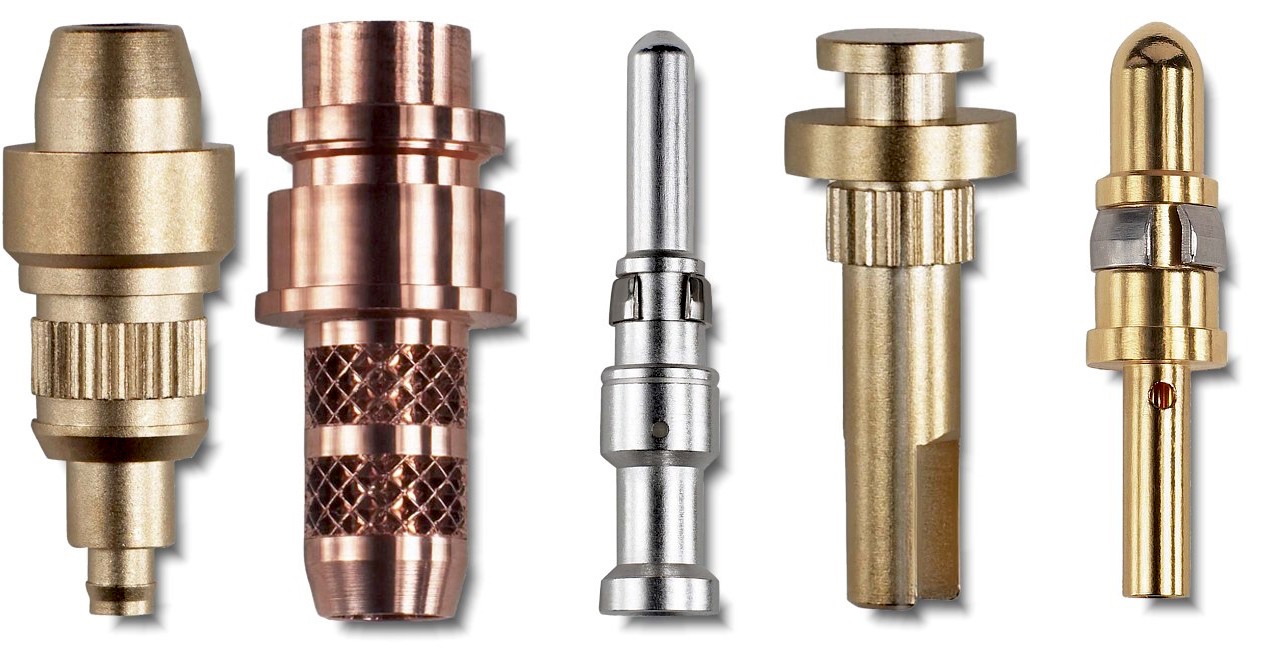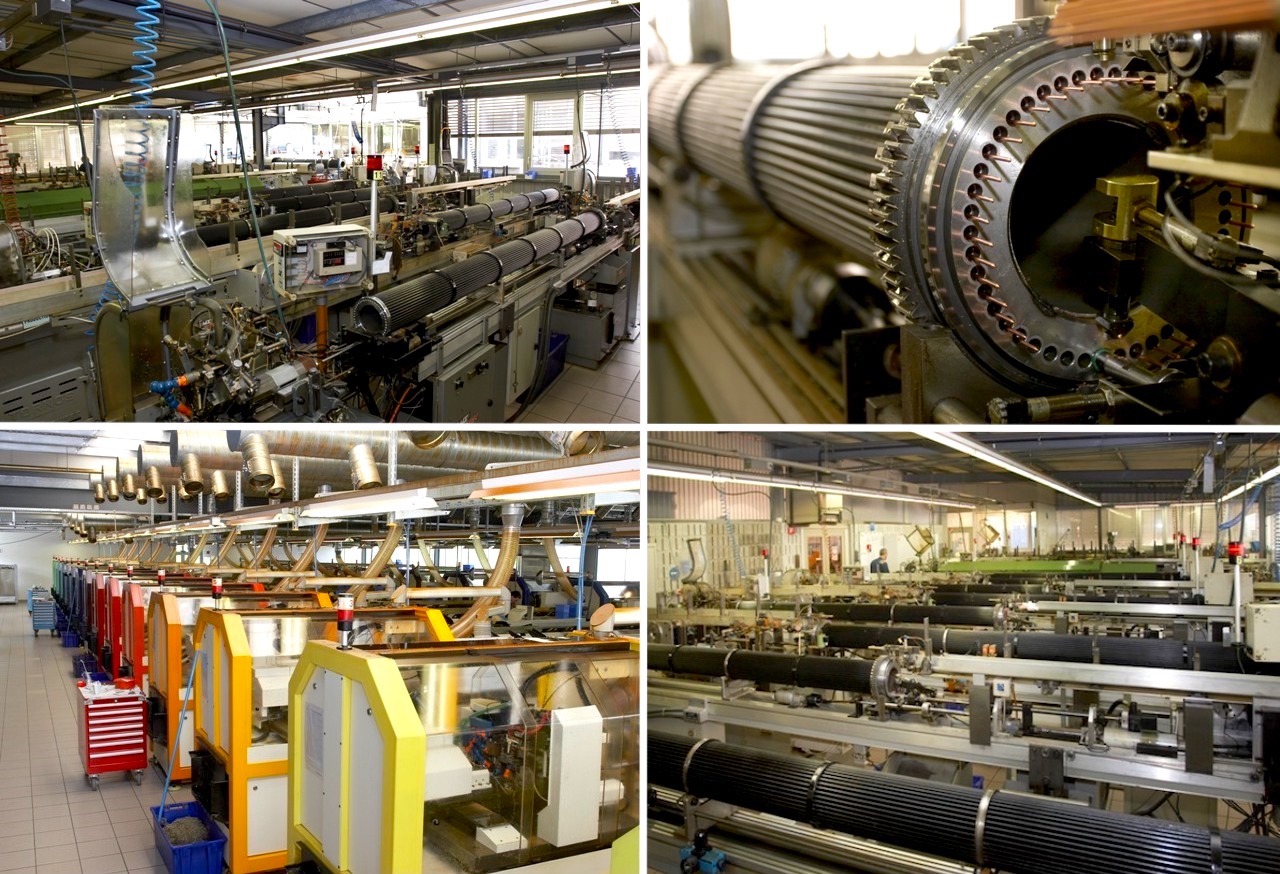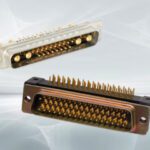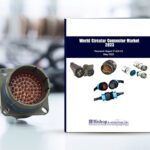How to Choose a Screw-Machined Parts Supplier for Mil/Aero Product Development
Reliable, screw-machined parts help ensure the optimal operation of connectors employed in mission-critical applications. It’s important to select a supplier that understands the unique requirements of this market.
High-precision screw-machined parts are critical components of advanced interconnect products. Screw-machined parts include PCB tail pins and sockets, crimp barrel pins and sockets, closed-entry solder cup pins and sockets, bent pins and sockets, and coax, twinax, triax, quadrax, and octoax pins and sockets. They are critical building blocks in high-reliability, harsh-environment circular and rectangular signal, power, and radio frequency (RF) connectors, and must meet rigorous quality and performance requirements for use in military and aerospace connectors.
Military and aerospace market applications for these components can include rectangular connectors employed in ARINC 600 racks and panels, EN4165 connectors employed in aircraft cabin and in-flight entertainment systems, RF connectors employed in telecommunications, and circular Mil-DTL-38999 and EN3645 connectors employed in other aircraft systems.
High-quality screw-machined parts are characterized by extremely tight tolerances. They are produced using ultra-precise screw machines capable of achieving small- to medium-sized monoblock and plain parts in a wide range of dimensions and in medium- to high-volume quantities. Since these components are often responsible for transmitting power, signal, or RF, mil/aero interconnect engineers should seek experienced, trusted suppliers. Lower-quality components can fail to meet harsh environment application requirements and can be less durable than precision-machined parts, which can cause the connectors they’re designed into to fail prematurely and endanger entire systems.
Quality Criteria for Screw-Machined Parts Suppliers
Leading screw-machined parts suppliers constantly monitor and actively adapt to new developments and market trends to satisfy the needs of both present and future technologies. In the mil/aero market, this includes monitoring the drafting and approval of military specifications. This close relationship between the supplier, regulatory bodies, and researchers helps develop standard product lines that deliver performance and reliability. By anticipating and addressing customer and market demands, suppliers can also help customers reduce costs on the front end.
Standard product lines of screw-machined parts encompass a wide variety of contact materials, sizes, platings, and termination options, including:
- Beryllium copper, copper alloys, bronze, brasses, stainless steel, and various thermocouple contacts, such as ferro nickel, Alumel, Chromel, Constantan, iron, and Kovar
- Contact sizes spanning #2–30
- Part diameters extending from 0.2–10mm
- Full-gold, selective gold, Swisscoat, palladium nickel gold, nickel, silver, and tin plating options
- Crimp barrel, straight pin, PCB solder tail, wire wrap, solder cup, press-fit, 90° pin, double 90° pin, turret wire, slotted terminal, and wiring slot terminations

Quality screw-machined parts suppliers like Lemco Précision offer a range of options, including contact materials, sizes, platings, and terminations. The company manufactures its products in two facilities in Switzerland.
In response to current market trends, several leading screw-machined parts suppliers now offer smaller contact sizes, from #23 to #30 in accordance with AS39029 and EN3155 specifications. Closed-entry pins are another popular component in today’s mil/aero designs. These parts have a machined hole at the beginning of the socket instead of a separate hood that requires an additional assembly operation. By integrating this feature into the body of the pin, screw-machined parts suppliers can quickly and cost-effectively deliver a monoblock contact with perfect alignment and reduced contact diameter.
A variety of alternative contacts and platings offer expanded choices for advanced interconnect designs. For instance, micro-isostatic and nano-isostatic contacts are alternatives to standard micro-D and nano-D contacts. These monoblock contacts provide good rigidity, have three equidistant arcs of electrical contact to ensure perfectly centered mating, and are capable of enabling hermetically sealed connectors. They also offer reduced production cycle times compared to standard micro-D and nano-D contacts.
Similarly, Swisscoat, a galvanic multilayer plating material with a gold finish, offers significant cost savings over standard gold plating processes, even though it delivers comparable performance and conforms to MIL-C-45204 Type II Grade C specifications. Originally developed for use in the watch industry, Swisscoat has been optimized for use in interconnects. Its excellent tribological properties, based on a proven nanotechnology principle, achieve an optimal lubrication effect. Its base layer provides guaranteed long-lifetime, corrosion- and wear-resistant contact performance. Its thin gold layer provides low, consistent electrical contact resistance. Swisscoat plating is available for any cable crimping size and is suitable for high-mating-cycle applications.
Leading screw-machined parts suppliers also have the engineering expertise to address semi-custom and completely custom design needs. In the military and aerospace interconnect market, unique products must meet rigorous design and performance requirements to support the success of the application. Quality engineering support often starts with the identification of a complete solution at an early stage in the design, lasts through prototyping, and concludes with the successful production of customer-specific products.
Production Capabilities of Quality Suppliers
Well-established screw-machined parts suppliers have an extensive range of diversified production equipment, including multi-axis CNC machines for tight-tolerance, high-performance contact production, high-speed Swiss CAM machines for high precision at high volumes, and high-speed milling, drilling, marking, bending, deforming, and de-burring machines. Legacy suppliers can easily exceed 500 total machines.

Legacy suppliers utilize an extensive range of diversified production equipment. Some, like Lemco Précision, even develop many of their own machines.
Large suppliers manufacture a wide variety of products in varying volumes on a daily basis. They can also provide enhanced production capabilities, including:
- Zone Annealing, which maintains the hardness of the material in the active area while providing a soft material on the crimp barrel area. This process enables the production of mil/aero-approved wiring harnesses.
- Heat Treatments, which increase the hardness of materials like beryllium copper — which is often specified in high-reliability, harsh-environment applications. This creates a better material structure for full annealing.
- Full and Selective Plating, which satisfies the rugged performance requirements defined in such specifications as SAE AS39029 and EN3155 with 30μin or 50μin of full coverage.
- Hood Assembly, which protects socket contacts slots, centers the pin, and satisfies specifications including AS39029 and EN3155.
- Color Coding, which informs the cabling operator in final assembly and adheres to certain mil/aero specifications (e.g., one-, two-, three-, and four-band color coding).
Some legacy suppliers also have in-house machine experts and develop many of their own production equipment machines in-house. This expertise provides customers with flexible manufacturing capabilities, customized quality, reduced downtime, and improved cost management.

Lemco Précision provides high quality control through a combination of ISO-9001 and IATF 16949 certifications, skilled staff, and advanced testing and control equipment.
High-quality screw-machined parts suppliers operate in accordance with in-house quality control measures, as well as industry quality standards like ISO 9001 and IATF 16949, and hazardous substance mandates like REACH and RoHS. These benchmarks help maintain consistently high manufacturing standards and encourage continuous improvement. A close working relationship with your supplier can help interconnect designers meet regulatory, design, performance, and delivery goals.
Like this article? Check out our other Materials, Connector Basics, and How to Specify, our Military/Aerospace Market Page, and our 2021 and 2020 Article Archives.
- Five Keys to Selecting the Right Contacts Manufacturer for Smart Devices - September 26, 2023
- How to Choose a Screw-Machined Parts Supplier for Mil/Aero Product Development - March 16, 2021






